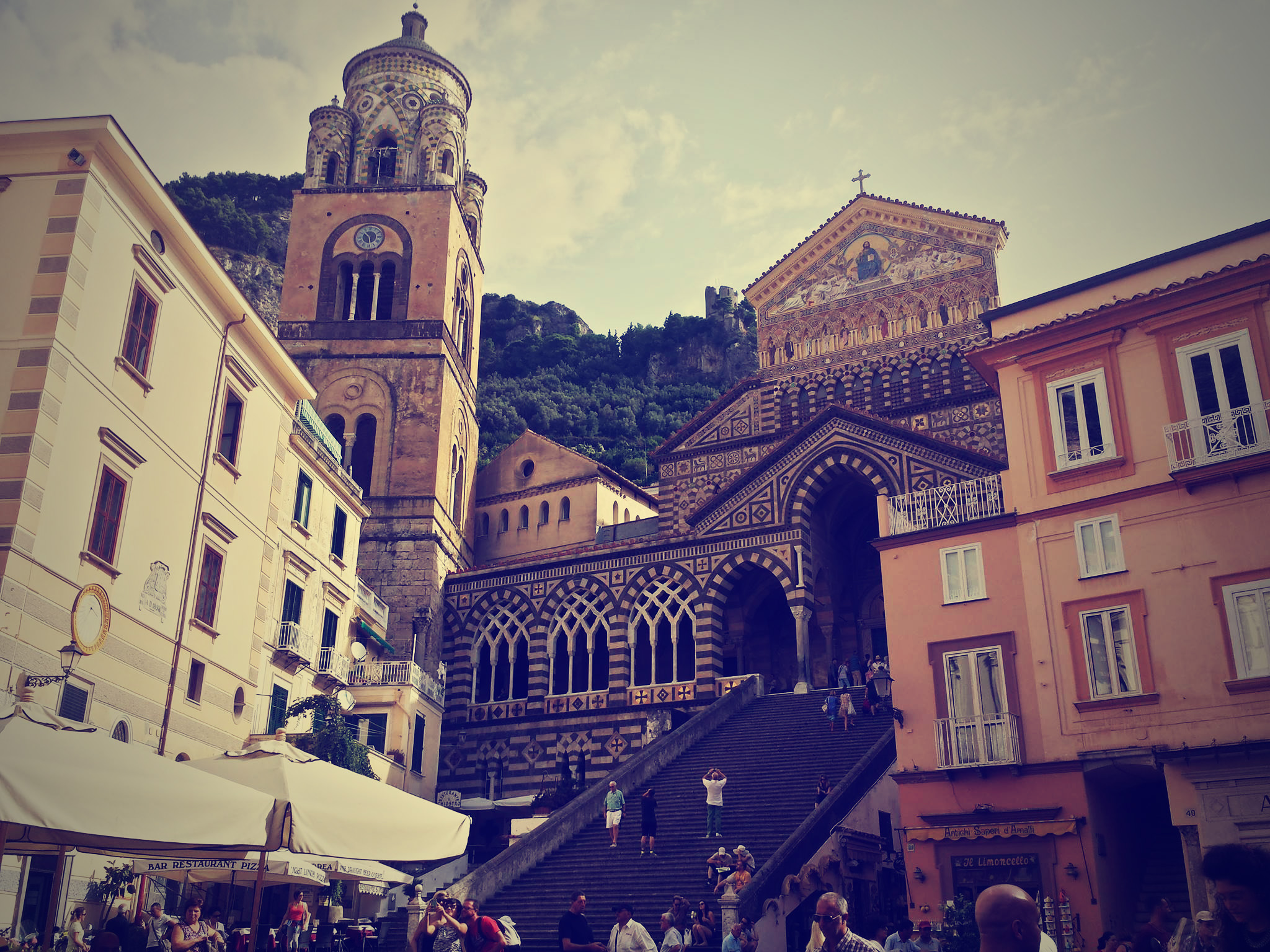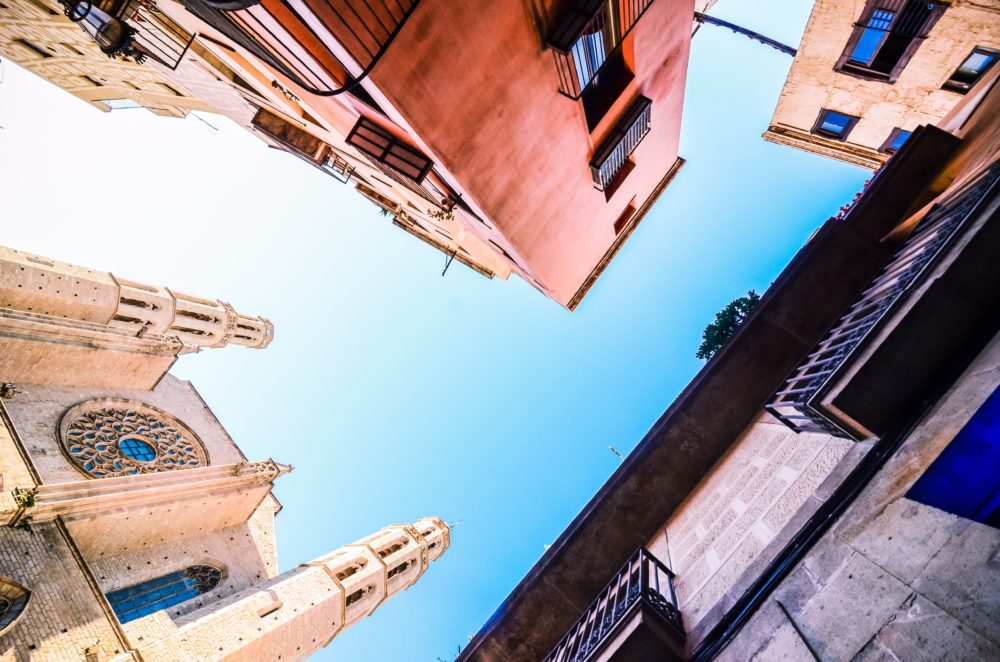Simply put travelling Europe is an amazing experience. You will be able to explore places that have thousands of years of history, such as Rome, meet fellow travellers from around the world and see breathtaking landscapes. Start your trip in a place like London, certainly one of the best cities in the world, but also somewhere English is spoken and at least some things will be familiar helping you ease into foreign travel. Below are top 10 backpacking tips for travelling around Europe.
Keep Weight Down
Europe's connectedness and relatively small size makes it easy to get around. One mistake many backpackers make is packing to much gear. The heavy weight quickly turns travelling into a chore and burns a lot of your energy. Another reason to keep weight down is to ensure that you meet the weight limits set by Europe's budget airlines for carry-on luggage, and avoiding paying extra to check your pack. To ensure both ease of moving about and travel weight restrictions keep your backpack total weight, including the pack, to 10kg (22lbs) max. Even if you plan to travel by train and not plane, keeping your backpack weight to 10kg makes keeping an eye on your belongings much more manageable.
Your Backpack
While on the subject of your backpack's weight, the pack itself is also an important consideration. This is something that it is worth investing a little money in to get a good quality backpack. It is better to buy a backpack that has an internal frame, as these are less bulky. Also check the straps to ensure they have sufficient padding that will help distribute the pack's weight in the most comfortable way. Get a backpack that is suitable for your size and height, otherwise you can end up very uncomfortable, or even worse hurting yourself. And finally, look for a backpack that comes with a detachable daypack, so you don't have to carry a large bag around when you're exploring your destination.
Clothing
Figuring out what clothes to pack for Europe can be a bit tricky. The weather and climates can change drastically from one end to the other. One thing to keep in mind is to blend in. This will make you less likely to be targeted by thieves. Avoid wearing American sports wear and sneakers as this makes you stand out as an American tourist from 100-feet away.
You will want to pack layers, so that you can stay cool or warm with the range of temperatures you'll experience. However, pack items that are lightweight, dry quickly, and not to bulky. A mac is a good addition to have with you. These are extremely lightweight rain jackets that can squish up, taking up a small amount of space. You will want some type of rain protection if you're visiting places like Ireland or Scotland where it can be sunny one minute and raining the next. A fleece jacket is a good warmth layer as they can be fairly thin and not heavy.
Accessories and Other Items
Keep non-clothing items to absolute necessities. One great little item to pack is a flexible travel clothesline, which can stretch across the poles of a hostel bunk allowing you to dry any clothes you've hand washed. Also pack a padlock, as you won't always be able to get one in all accommodation options. One that is both a lock and has a retractable cable is ideal.
You will most likely also need to pack one or more power converters, so that you can charge your phone or other devices. Make sure you have the right ones for the countries you're visiting, for example the UK and Ireland use the same type of plug, but it differs from other western European countries. Also, pack a mini plug extension, as many European hostel dorm rooms will have just one or two plugs for 10 people! One thing to note is that instead of packing your hair dryer, which can be large, and often they don't work with a plug converter, is to buy a small travel sized one once you arrive in Europe.
Money Belt
Money belts are small belts with a compartment where you can store you cash, documents, and bank cards. They are worn around your waist under your clothing. The most common crime tourists face is many European cities is pickpocketing. Some places are more notorious than others, but always being smart with how you store your money and passport will help you avoid a pickpocketing nightmare. Don't fumble with your money belt in full view, as this will give away your tourist status too.
InterRail and Eurail Pass
One of the most traditional and best ways to get around Europe is by train. An excellent rail network spans from country to country allowing you to connect to major cities and reach many more rural areas on local trains. If you purchase train tickets individually and last minute in Europe they can be expensive. However, backpackers have long made use of the InterRail or Eurail pass.
To use an InterRail pass, you need to have been a resident of Europe for at least 6-months prior to purchasing a ticket. If you are not a European resident then you should buy the Eurail pass. These passes come in different types that allow you to visit a certain amount of countries, with a certain amount of journies in a specified number of days. You can choose the pass that best suits the places you want to visit and make a good saving on your travel costs. You can even plan to travel on overnight trains, combining both a place to sleep with your travel.
Visa Debit Card
When travelling it is best to not carry a lot of cash with you just in case something gets stolen or lost. The traditional way easily access funds was to get a load of travellers checks from your local bank before departing. However, this is hardly done now. The best way to have quick access to your cash is to have a Visa debit card. Anywhere that accepts Visa cards or has a Visa symbol on the ATM machine, which is pretty much everywhere, means that you can instantly withdraw money in the local currency.
Learn Some of the Language
While no one expects you to be fluent in another language, especially when backpacking around Europe where you'll encounter several different languages, it is a good idea to learn a few useful phrases for each country you'll be visiting. Even a small attempt, such as simply saying hello and thank you will be much appreciated by the local people. It will show that you are making some effort to get to know the local culture and it will almost always get you a much more friendly response.
Get Ulmon
Ulmon is a brilliant app that you can download to your phone or tablet, and even better it's free. The app is made especially for travellers and has hundreds of maps that you can download covering Europe. The maps also include the locations of restaurants, hotels, attractions, and shops in that destination; there are plenty of great photos too. You can use the maps offline, so you don't need to worry about expensive data charges or finding WiFi. You can even use them to navigate around a city even though you don't have a data connection. Plus, having these maps on your phone helps you blend in and not look like a tourist that is fumbling with an awkward to hold map while walking around. Plan ahead and download all the maps you'll need before leaving and make sure you have an alternative if Ulmon doesn't cover a particular area you plan to visit.
Random but Important Tips
Plan your route in advance but don't try to pack to much in. Take into consideration the time it will take you to travel between destinations; this is usually longer than you think as Europe's train stations are extremely busy. Make sure to give yourself enough time to truly explore each place. Europe has a vast history and many different, amazing landscapes. Book your accommodation in advance. You will get cheaper rates for hotel rooms or hostels by doing this. Also, make sure you take note of any important addresses, such as where you're staying and how to get there, so you can easily and inconspicuously find them when you arrive.
A fantastic tip one backpacker of Europe suggests is to get an extra debit card, so that you have two. This tip came after an ATM machine in the UK did not return his card and he was stuck taking, very expensive cash advances off a credit card. Finally, before you travel scan all of your important documents – your passport, driver's license, travel tickets, and even your birth certificate. Once scanned email them to yourself. If you end up loosing your actual documents while travelling having scans of them makes things much easier when you visit your country's consulate, as proving who you are is a lot less stressful.





